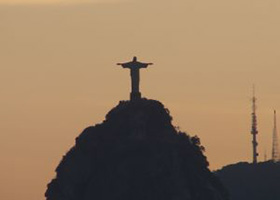


During his presentation at the 2016 Global Investment Conference, held in San Diego from April 6-8, Losada spoke about Brazil and what investors should think about when it comes to investing there.
He outlined how Brazil got to the place it is today. In 2002, when President Luiz Inácio Lula da Silva took office, the country was under severe financial stress. When President Lula took over, he engineered an economic turnaround and foreign direct investment surged. A new middle class also emerged, with an estimated 30 million people crossing the poverty line. “This was a social revolution in the true sense,” Losada said.
However, there were issues brewing behind the macro good-news because of microeconomic distortions that remained unattended. The bulk of credit supply remained directed by state-owned development banks, explained Losada, adding that the regulatory framework remained outdated and prone to resource misallocation.
The global financial crisis of 2008 and then the drop in commodity prices made those shortcomings more evident. “All these problems came to the surface,” noted Losada. The difficulties intensified during the first term of President Dilma Rousseff, between 2011 and 2014.
The Brazilian economy is now undergoing a sharp contraction of economic activity. GDP shrank by almost 4% last year and is on track to contract by probably another 4% next year, Losada explained.
Both interest rates and inflation rates have remained very high. The government has been working with an inflation-targeting regime, although the credibility of such an inflation goal is questionable. “For starters, the inflation target itself is very high. The medium-term target is 4.5%. It’s the highest among the countries that have these types of regimes,” he said.
The currency in Brazil has also sharply depreciated. “This was initially by design and then because the government gradually lost control of the macro situation,” Losada said.
“As a result of these factors, Brazil lost its investment- grade status,” Losada added. “This was, politically, a hard pill to swallow.”
Brazil is now rated sub-investment grade, according to all major rating agencies, and it is unlikely to return to the coveted investment-grade status anytime soon.
At this point, Brazil needs to signal that change is on the way — said Losada, the higher the perceived chances of political change, the more interest there will be in Brazilian assets.
He explained that he is supportive of having some assets in Brazil as the short end of the local yield curve offers value and because it is unlikely that the central bank will tighten again. “As well, the currency has already depreciated — Brazil needs a weaker currency to attract foreign direct investment and fuel growth,” he said.
The political landscape is still fragile and Losada explained that in the absence of a resolution to the ongoing political crisis, Brazil will remain stuck in a bad equilibrium of low growth and high inflation.
“The deep root of this problem is political, so the solution has to be political, too,” Losada said.
“It’s a place in which you can make money, but you have to be prepared to lose some nights of sleep,” he concluded.
